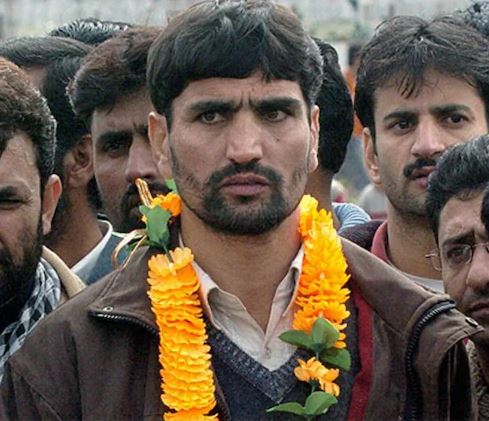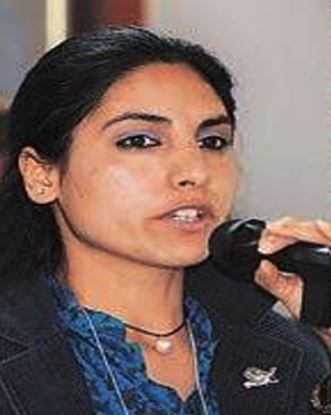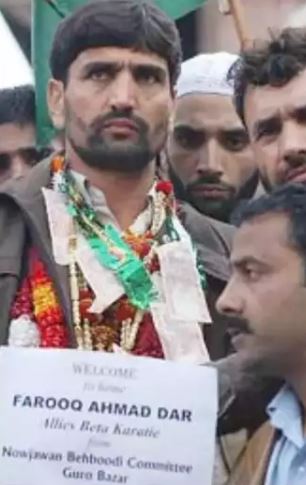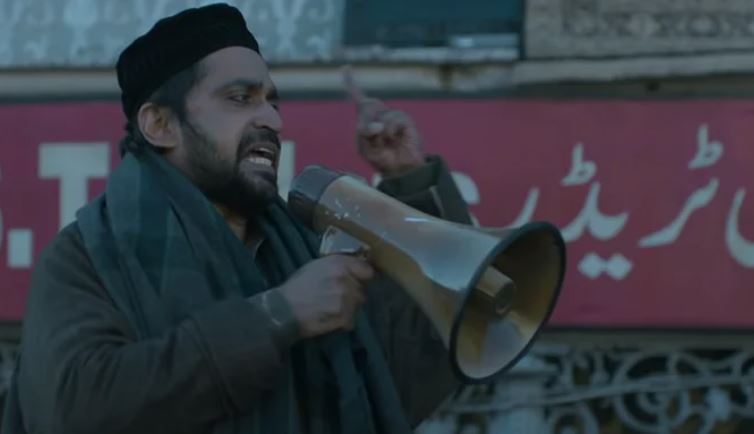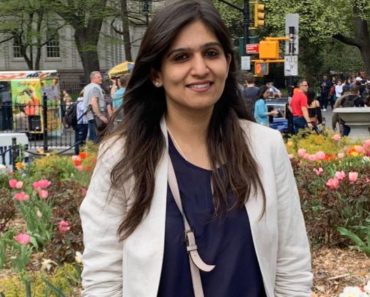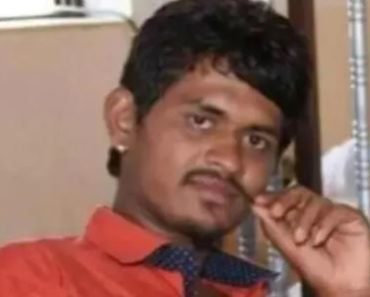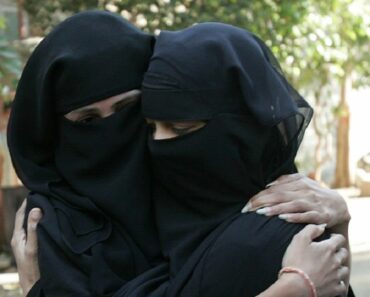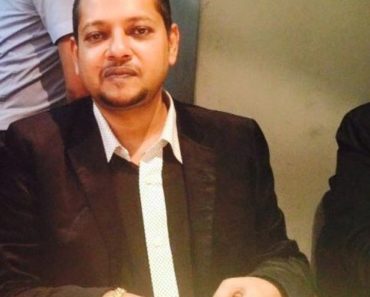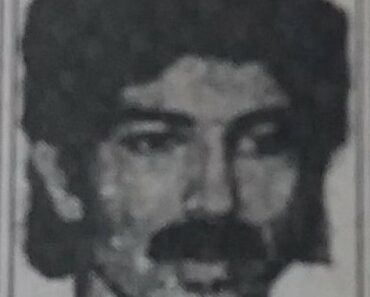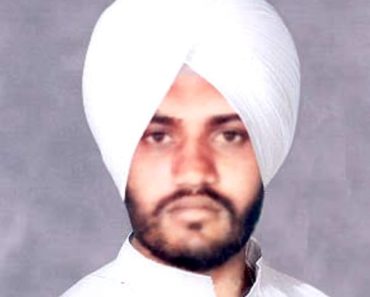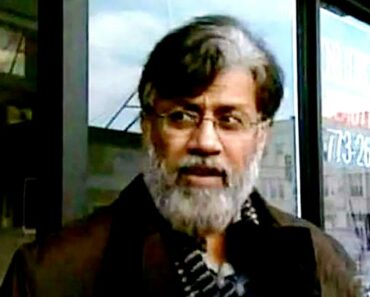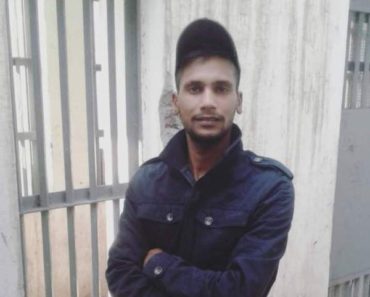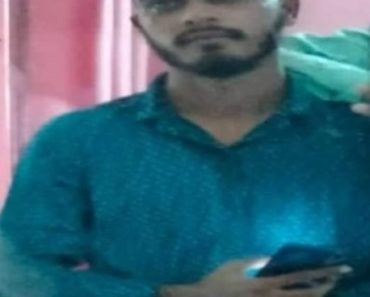Farooq Ahmed Dar, better known by his pseudonym Bitta Karate, [1]Aaj Tak is an Indian militant. He is alleged to hold the citizenship of Pakistan. [2]Wikipedia Farooq is the chairman of the Jammu Kashmir Liberation Front (JKLF), a militant separatist organization active in the territories of Kashmir (as of 2022). He is infamous for killing Kashmiri Hindus during ethnic cleansing in 1990. [3]Aaj Tak
Contents
Wiki/Biography
Farooq Ahmed Dar was born on Monday, 1 January 1973 (age 49 years; as of 2022) in Guru Bazar (neighbourhood of the city of Srinagar), Kashmir Valley. His zodiac sign is Capricorn. Growing up, he learned martial arts and within a few years, achieved proficiency in it. Initially, he used to work for his family business and while he was in his early 20s, Dar left his home to receive armed training in Pakistan-administered Kashmir.
Physical Appearance
Height (approx.): 5′ 8″
Hair Colour: Black
Eye Colour: Brown
Family
He was born into a Kashmiri Muslim family of the Dar clan. [4]Wikipedia
Parents & Siblings
Farooq’s mother’s name is Fatima. Not much is known about his father. He has a brother.
Wife & Children
Farooq Ahmed Dar got married to Assbah Arzoomand Khan on 1 November 2011. Assbah Arzoomand Khan is a state administrative service official (Jammu and Kashmir), and she was working as a probationer in the General Administration Department at the time of their marriage.
Relationships/Girlfriends
Farooq Ahmed Dar met Assbah Arzoomand Khan for the first time in 2008 at a friend’s house. Soon, Farooq proposed to Assbah, and she agreed after initial hesitation. They dated each other for around a year and a half and then decided to marry. Assbah’s parents initially opposed their relationship as they did not want their daughter to marry a former militant. However, after much persuasion from Assbah, Farooq, and his (Farooq) family, her parents agreed. During an interview, while talking about Farooq, Assbah said,
In most of the families in the valley, you will find such instances where one son is a militant while the other son works in the government. Marrying a former militant is not at all surprising for me. My family had an initial objection to the marriage which was valid. The major point of attraction between me and Farooq was that we belonged to the same community. I like Farooq’s ability to make decisions.”
Journey to Militancy
Distressed with the administration in the Kashmir Valley, Farooq set out on the path of terror when he was just 20 years old. In 1988, he was handpicked by the then JKLF chief commander Ashfaq Majeed Wani to receive 32-day armed training in the state-sponsored Pakistani militant training camp. Dar, along with other trainees, was blindfolded and taken across the LoC to Pakistan-administered Kashmir, where the training camp was set up.
Involvement in the Ethnic Cleansing of the Kashmiri Pandits
Following his return from the arms training in Pakistan-administered Kashmir in the 1990s, Farooq Ahmad Dar went on to unleash a wave of violence on the streets of Srinagar. He walked armed on the streets in search of Kashmiri Pandits and shot them with his pistol wherever he spotted them. Apparently, he received orders for execution from his superior Ashfaq Majeed Wani in the Jammu Kashmir Liberation Front. Bitta is alleged to have killed around 20 people, most of which were Kashmiri Pandits. During the 1990 exodus, the Kashmiri Pandits were asked to choose between “Raliv, Galiv ya Chaliv” (convert, die or leave). Many of them were killed in militancy and thousands of pandit families migrated from Kashmir during the 1990 insurgency. While he used pistols to kill civilians, Bitta attacked the Indian Security Forces using AK-47. In an interview, Dr. Agnishekhar, the convener of Panun Kashmir, a body of migrant Kashmiri pandits, criticised the state’s (Jammu and Kashmir) administration for releasing Bitta even after he proclaimed killing 42 Hindus. He said,
It is shocking for us that a man who publicly proclaimed to have killed 42 Kashmiri Pandits has gone scot-free. It is also an irony that Afzal Guru was sentenced to death in the Parliament attack case though he was not personally present there, yet the man who admitted to having killed Pandits has walked free.”
Further, Agnishekhar said that it was the state’s (Jammu and Kashmir) failure to punish Bitta for his crimes that had enraged the Kashmiri Pandits.
T. N. Khosa, president of Kashmiri Pandit Sabha, also questioned the state’s (Jammu and Kashmir) ability to try Farooq, a man responsible for the killings of pandits in the 1990s. He said,
It is highly regretful that the state government did not take steps to try the man responsible for the killing of pandits. I can only pray for the people at the helm and advise them not to play with the emotions of Kashmiri pandits.”
Reportedly, the targeted killings of the Kashmiri Pandits began in January 1990, right after the kidnapping of the then Union Minister Mufti Muhammad Sayeed’s daughter Rubaiya and ended with the release of some dreaded terrorists. Farooq led the exodus and was the chief hitman of the Jammu Kashmir Liberation Front (JKLF) until he was arrested in June 1990.
Killing his Childhood Friend
Farooq Ahmad Dar’s first victim during the 1990 exodus of the Kashmiri Pandits was his childhood friend Satish Kumar Tickoo (businessman). Dar shot him dead right in front of his (Satish) house. In an interview, Farooq disclosed that he killed Satish as he received the orders to do so. He said that Satish was killed because he belonged to a Kashmiri Pandit family and was a follower of RSS. [5]Aaj Tak
Conviction & Arrest
During an interview, Farooq admitted killing around 20 people (most of which were Kashmiri Pandits) in Kashmir during the insurgency in 1990. However, later he claimed that he did not kill anyone, and he had made the earlier statement under coercion. On 22 June 1990, Farooq, along with two of his associates, was arrested by the Border Security Force from Srinagar. He had around 19 terrorism-related cases against him and was detained under the Public Safety Act in various prisons across India. He was kept in official custody at Kot Bhalwal Jail in Jammu, District Jail in Kathua, Central Jail in Jodhpur, and Central Jail in Agra. Dar remained under detention for around 16 years.
Bail & Release
Farooq was granted bail for four months on 23 October 2006 by a court enforcing the Terrorist and Disruptive Activities (Prevention) Act (TADA court) in Jammu. He was handed over to his family on 25 October 2006. The bail was granted to him against a bail bond and personal surety of Rs.1 lakh. Later, the Supreme Court of India revoked his detention under the Public Safety Act. While dictating the verdict, Justice Wani remarked,
The court is aware of the fact that the allegations against the accused are of serious nature and carry a punishment of death sentence or life imprisonment but the fact is that the prosecution has shown total disinterest in arguing the case.”
Following the verdict of the court, Dar was released from jail after spending 16 years in it. While his release was condemned by many Kashmiri Pandit organizations, Farooq received a rousing reception from his supporters in Kashmir. He was brought in a procession by JKLF to the Guru Bazaar area of Kashmir where a large number of supporters assembled near his house and showered flower petals and confetti on him. Dar addressed his supporters and went to the Eidgah to pay homage to his militant colleagues, who were killed by the security forces in 1990.
Political Career
After his release from detention in 2006, Dar joined the Jammu Kashmir Liberation Front and later became the chairman of the group.
Arrested for Financing Terrorism
In 2019, Bitta was again arrested by the National Investigation Agency (NIA) on charges of terror funding. NIA charged Farooq and others accused in the case of “conspiring to wage war against the government” and fomenting trouble in the Kashmir Valley. [6]The Times of India As of 2022, he is under the official custody of the National Investigation Agency.
Facts/Trivia
- Farooq Ahmed Dar also goes by the name Bitta Karate. While ‘Bitta’ was his nickname in childhood, he added Karate to it because of his mastery of martial arts. [7]Jagran Josh
- In an interview, he claimed that he would have also killed his own mother or brother if he received the orders to do so from his seniors.
- Once the Jammu and Kashmir police chief JN Saxena described him as,
Not the most dreaded terrorist but he was the compulsive killer. He committed some gruesome murders in front of women and children.”
- On 11 March 2022, a Hindi film based on the genocide of Kashmiri Pandits in 1990 was released in India. The film was written and directed by the Indian film director Vivek Agnihotri. In the film, Dar is portrayed as ‘Farooq Malik Bitta’ and the character is played by the Indian actor Chinmay Mandlekar.

